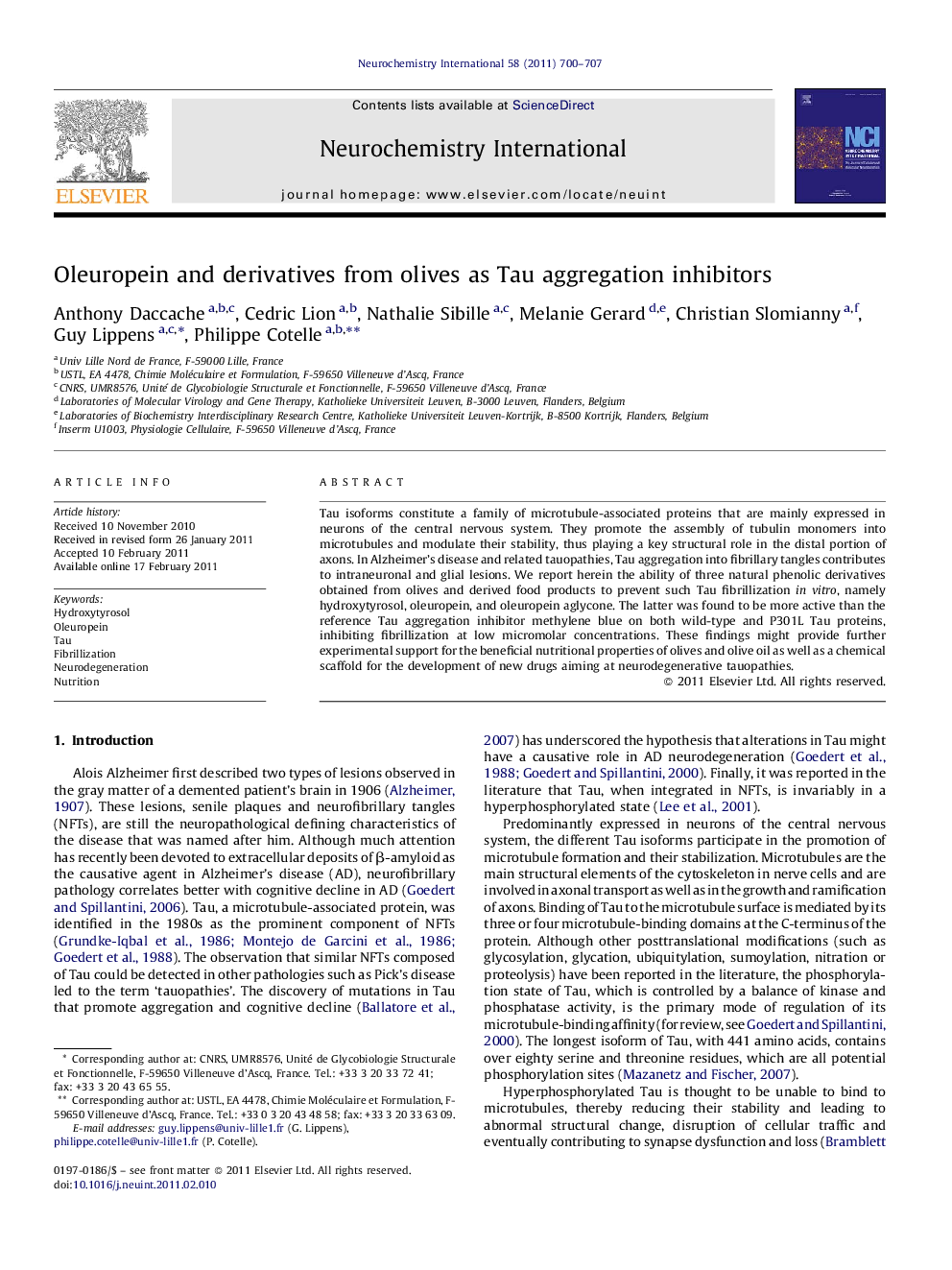| کد مقاله | کد نشریه | سال انتشار | مقاله انگلیسی | نسخه تمام متن |
|---|---|---|---|---|
| 2201147 | 1100000 | 2011 | 8 صفحه PDF | دانلود رایگان |

Tau isoforms constitute a family of microtubule-associated proteins that are mainly expressed in neurons of the central nervous system. They promote the assembly of tubulin monomers into microtubules and modulate their stability, thus playing a key structural role in the distal portion of axons. In Alzheimer's disease and related tauopathies, Tau aggregation into fibrillary tangles contributes to intraneuronal and glial lesions. We report herein the ability of three natural phenolic derivatives obtained from olives and derived food products to prevent such Tau fibrillization in vitro, namely hydroxytyrosol, oleuropein, and oleuropein aglycone. The latter was found to be more active than the reference Tau aggregation inhibitor methylene blue on both wild-type and P301L Tau proteins, inhibiting fibrillization at low micromolar concentrations. These findings might provide further experimental support for the beneficial nutritional properties of olives and olive oil as well as a chemical scaffold for the development of new drugs aiming at neurodegenerative tauopathies.
Figure optionsDownload as PowerPoint slideResearch highlights
► Oleuropein, oleuropein aglycone and hydroxytyrosol inhibit Tau fibrillogenesis.
► Oleuropein provides a novel structural scaffold in the design of Tau aggregation inhibitors.
► Hydroxytyrosol, the main metabolite of oleuropein, may be linked to the reduced risks of AD and related tauopathies associated with the Mediterranean diet.
Journal: Neurochemistry International - Volume 58, Issue 6, May 2011, Pages 700–707